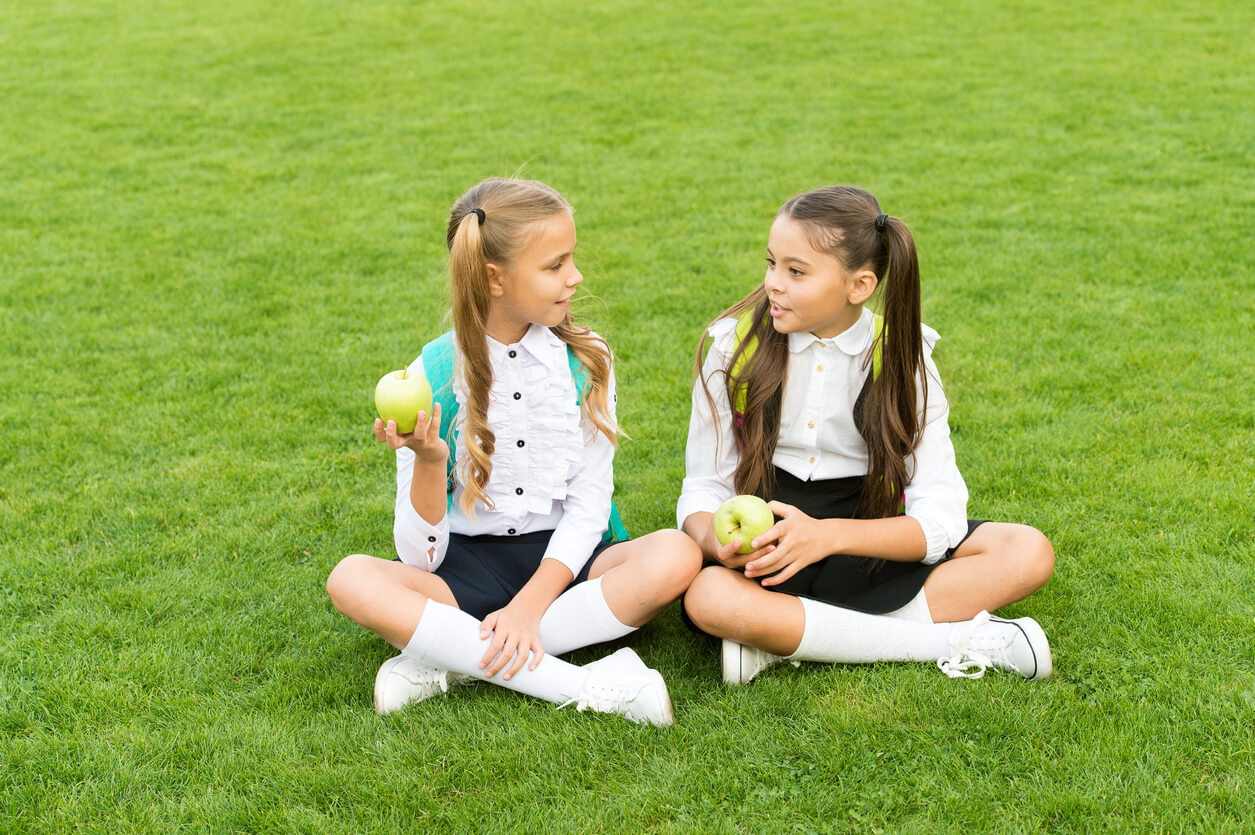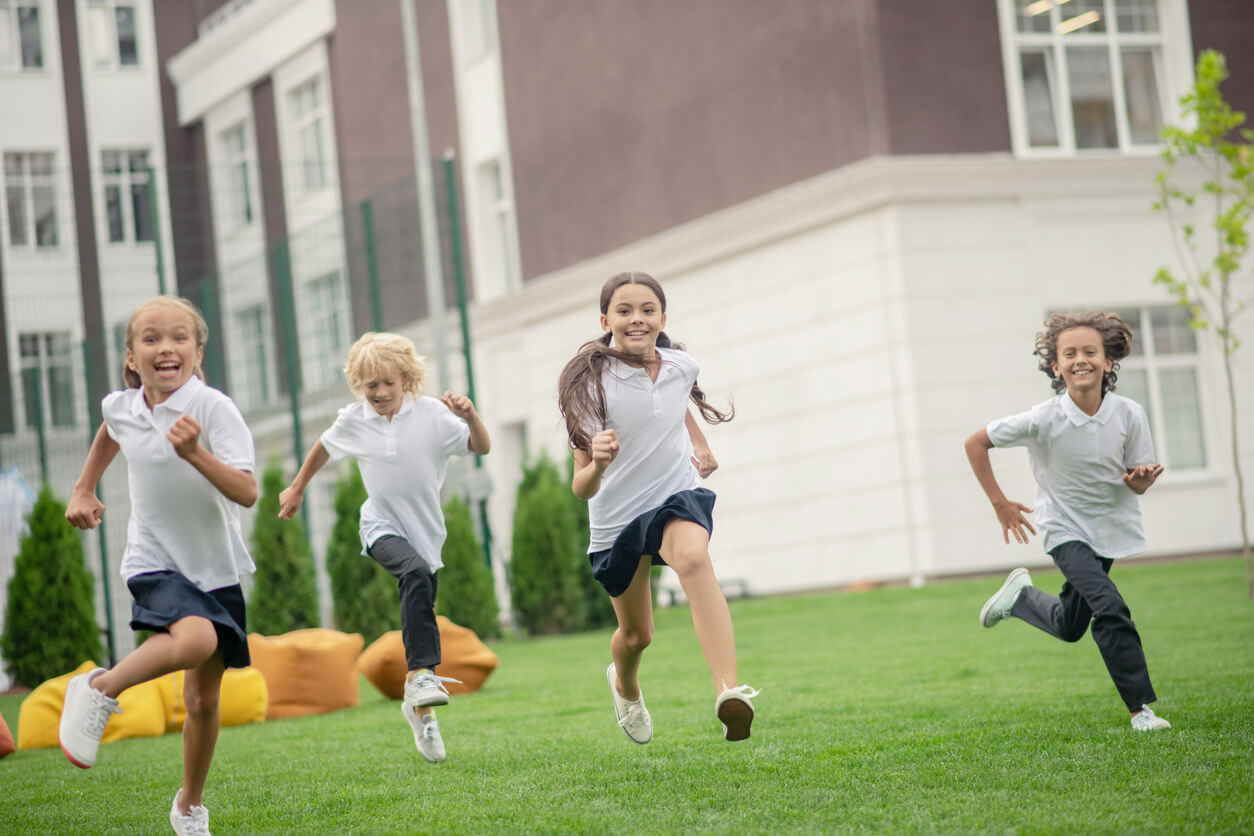The Advantages and Disadvantages of Boarding Schools for Children


Written and verified by the psychologist Maria Fátima Seppi Vinuales
When the time comes to choose what kind of education we want for our children, there are always challenges and uncertainties. We know that it’s a tool that we offer them for their quality of life and their present and future development. Nowadays, educational options are becoming more and more varied. Among them, are boarding schools for children. Here are their advantages and disadvantages.
Discover the advantages of boarding schools for children
Like any educational option, boarding schools for children have their strengths and weaknesses. Regarding the advantages, we find the following:
1- A comprehensive education
In general, boarding schools for children have an enriched program that addresses different topics. Therefore, learning takes place in a wide variety of areas.
2- They’re useful for certain family dynamics
With a rich variety of activities offered, boarding schools can provide quality time and be useful for families where parents work long hours or travel continuously for work. Also, families who live in remote locations and would have to travel long distances every day with their children can benefit from boarding schools.
3- Long-lasting relationships and unforgettable experiences
When the school climate is positive, children tend to forge close and important relationships. Because of the time and activities they share, friends eventually become a big family and an important source of support.

Disadvantages of boarding schools for children
Among the disadvantages of boarding schools for children we can find the following:
1- Separation from the family
It’s important to keep in mind that boarding schools imply that children are no longer living with their family. According to each child, this separation is experienced differently. For some, it may feel like abandonment and detachment, with consequences in the way they live and express affection. However, when there are other family members at the boarding school, such as siblings or cousins, the stay tends to be friendlier.
2- Economic cost
Some boarding schools, with the complex level of education they provide, imply a large investment that’s not always within the reach of all families.
3- Closed groups
Another disadvantage of boarding schools has to do with the fact that children’s socialization spaces are reduced to their same classmates. This makes a difference with respect to other alternatives, such as when the child goes to school and then to a club, language center, etc., and has the possibility of interacting with other people.
You may be interested in: Worldschooling or Learning By Traveling

Listening to the voice of the child is essential
Many times, adults have very clear values about what we consider best for children and adolescents. These ideas are born out of our upbringing, experience, and the influence of the society to which we belong. No one doubts that we may be motivated by a good purpose, but it’s essential to remember that our decisions have an impact on children’s lives.
It’s key to talk to children, dispel their doubts, and ask them how they feel and what they’d like to do. We probably agree that decisions like whether or not to take a bath or whether or not to go to school won’t be in the child’s hands, but we can make them part of certain aspects of that decision. For example, ask them if they want to take a bath in the morning or in the afternoon and how they feel about such a school.
On the other hand, children also come to teach us and build with us. So, if they don’t feel comfortable with a learning approach, instead of getting angry or frustrated with them, you can look for other ways of teaching that complement school. For example, cultural visits, educational trips, or library activities, among others. On the other hand, forcing them to do something they don’t want to do has negative consequences for their well-being.
You may be interested in: The Advantages and Disadvantages of School Uniforms
Let children be children
Finally, parenting always challenges us as adults. It invites us to ask ourselves what happened to us as children, what we’d like to repeat, and what we’d like to change. It also invites us to recognize what values are at the heart of our decisions and practices. In this regard, it’s about putting ourselves in the place of those children and getting out of the adult mold.
Sometimes, we’re governed by parameters that speak of the future, success, the development of potential, and making the most of time. However, many of these aspects are linked to the world of work and have a place in boarding schools. On the other hand, perhaps we should think more in terms of children playing and enjoying free time. In short, let children be children. They’ll have plenty of time to be adults.
When the time comes to choose what kind of education we want for our children, there are always challenges and uncertainties. We know that it’s a tool that we offer them for their quality of life and their present and future development. Nowadays, educational options are becoming more and more varied. Among them, are boarding schools for children. Here are their advantages and disadvantages.
Discover the advantages of boarding schools for children
Like any educational option, boarding schools for children have their strengths and weaknesses. Regarding the advantages, we find the following:
1- A comprehensive education
In general, boarding schools for children have an enriched program that addresses different topics. Therefore, learning takes place in a wide variety of areas.
2- They’re useful for certain family dynamics
With a rich variety of activities offered, boarding schools can provide quality time and be useful for families where parents work long hours or travel continuously for work. Also, families who live in remote locations and would have to travel long distances every day with their children can benefit from boarding schools.
3- Long-lasting relationships and unforgettable experiences
When the school climate is positive, children tend to forge close and important relationships. Because of the time and activities they share, friends eventually become a big family and an important source of support.

Disadvantages of boarding schools for children
Among the disadvantages of boarding schools for children we can find the following:
1- Separation from the family
It’s important to keep in mind that boarding schools imply that children are no longer living with their family. According to each child, this separation is experienced differently. For some, it may feel like abandonment and detachment, with consequences in the way they live and express affection. However, when there are other family members at the boarding school, such as siblings or cousins, the stay tends to be friendlier.
2- Economic cost
Some boarding schools, with the complex level of education they provide, imply a large investment that’s not always within the reach of all families.
3- Closed groups
Another disadvantage of boarding schools has to do with the fact that children’s socialization spaces are reduced to their same classmates. This makes a difference with respect to other alternatives, such as when the child goes to school and then to a club, language center, etc., and has the possibility of interacting with other people.
You may be interested in: Worldschooling or Learning By Traveling

Listening to the voice of the child is essential
Many times, adults have very clear values about what we consider best for children and adolescents. These ideas are born out of our upbringing, experience, and the influence of the society to which we belong. No one doubts that we may be motivated by a good purpose, but it’s essential to remember that our decisions have an impact on children’s lives.
It’s key to talk to children, dispel their doubts, and ask them how they feel and what they’d like to do. We probably agree that decisions like whether or not to take a bath or whether or not to go to school won’t be in the child’s hands, but we can make them part of certain aspects of that decision. For example, ask them if they want to take a bath in the morning or in the afternoon and how they feel about such a school.
On the other hand, children also come to teach us and build with us. So, if they don’t feel comfortable with a learning approach, instead of getting angry or frustrated with them, you can look for other ways of teaching that complement school. For example, cultural visits, educational trips, or library activities, among others. On the other hand, forcing them to do something they don’t want to do has negative consequences for their well-being.
You may be interested in: The Advantages and Disadvantages of School Uniforms
Let children be children
Finally, parenting always challenges us as adults. It invites us to ask ourselves what happened to us as children, what we’d like to repeat, and what we’d like to change. It also invites us to recognize what values are at the heart of our decisions and practices. In this regard, it’s about putting ourselves in the place of those children and getting out of the adult mold.
Sometimes, we’re governed by parameters that speak of the future, success, the development of potential, and making the most of time. However, many of these aspects are linked to the world of work and have a place in boarding schools. On the other hand, perhaps we should think more in terms of children playing and enjoying free time. In short, let children be children. They’ll have plenty of time to be adults.
All cited sources were thoroughly reviewed by our team to ensure their quality, reliability, currency, and validity. The bibliography of this article was considered reliable and of academic or scientific accuracy.
- Domínguez Alonso, Francisco Javier. 2009. Infancia en internados: historias, narrativas, itinerarios. Universidad de Alicante. URI: http://hdl.handle.net/10045/14255
- Brito , E., França , L., & Oliveira, L. . (2022). El ambiente educativo de internado y el bienestar psicológico de profesores y alumnos. Praxis & Saber, 13(34), e12836. Recuperado a partir de https://revistas.uptc.edu.co/index.php/praxis_saber/article/view/12836
This text is provided for informational purposes only and does not replace consultation with a professional. If in doubt, consult your specialist.








